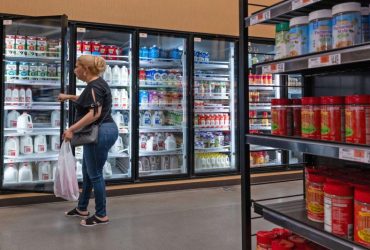If you don’t quite know how to feel about the U.S. economy at the moment, you’re not alone.
The highest inflation rates in four decades have caused U.S. consumers to turn sour on how they view their personal finances. Gallup found in a survey published last month that 50% of the respondents said their financial situations were worse than they were a year ago — the highest percentage since 2009.
And despite some data showing lower-wage workers’ pay is improving, 61% of lower-income people — those who earn no more than $40,000 a year — told Gallup their financial situations had deteriorated over the past year. That’s a higher percentage than for any other income group — yet even among higher-earning people, those who make at least $100,000 a year, 43% said they now feel pinched. NBC News has reported about how some people earning six figures or more were having to find ways to aggressively shore up their finances.
And yet, alongside the negative sentiments, economists cite a slew of data showing the U.S. consumer remains financially healthy.
Start with the unemployment rate, which, at 3.4%, is below pre-pandemic levels.
Meanwhile, as inflation has begun to decelerate, the aggregate amount of disposable income in the economy is starting to climb again, having recorded seven consecutive months of growth since June. Aggregate savings in the economy show a similar trend.
That has translated into sustained demand, which in turn produced a January jobs report that showed 517,000 jobs added — the most since July. And while gross domestic product has also most likely peaked in the post-pandemic period, it remains firmly in positive territory, with 2.9% growth in the most recent quarter.
‘By most objective measures, consumers are still doing fine,’ said Preston Caldwell, a senior U.S. economist at Morningstar, a financial services company. ‘And they’re spending as if they’re in good shape. So I wouldn’t pay much attention to what [the Gallup Poll] tells you.’







